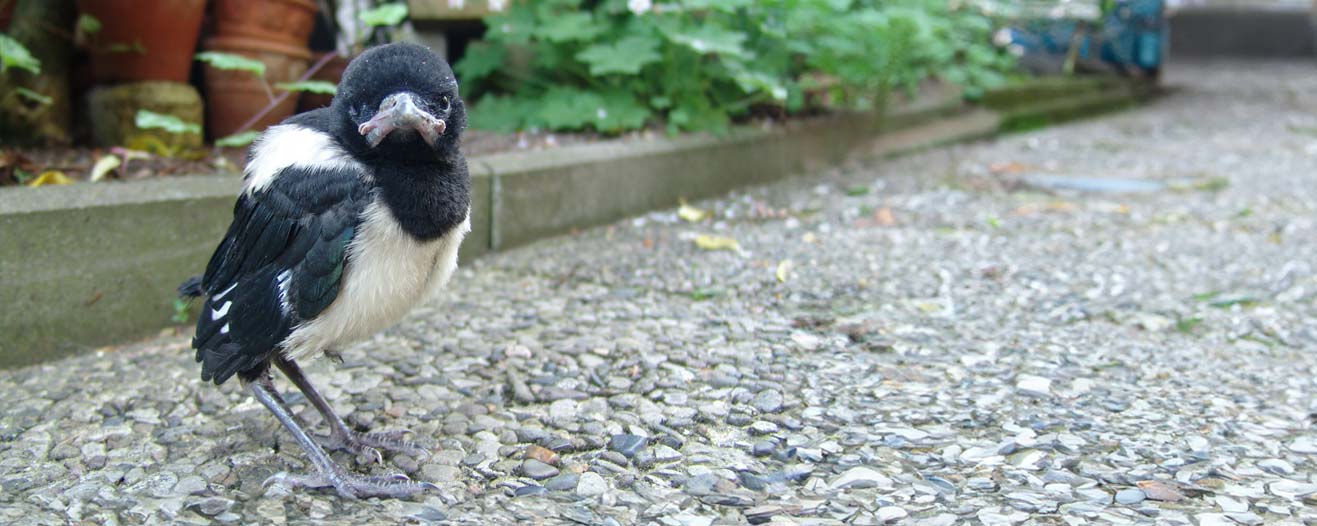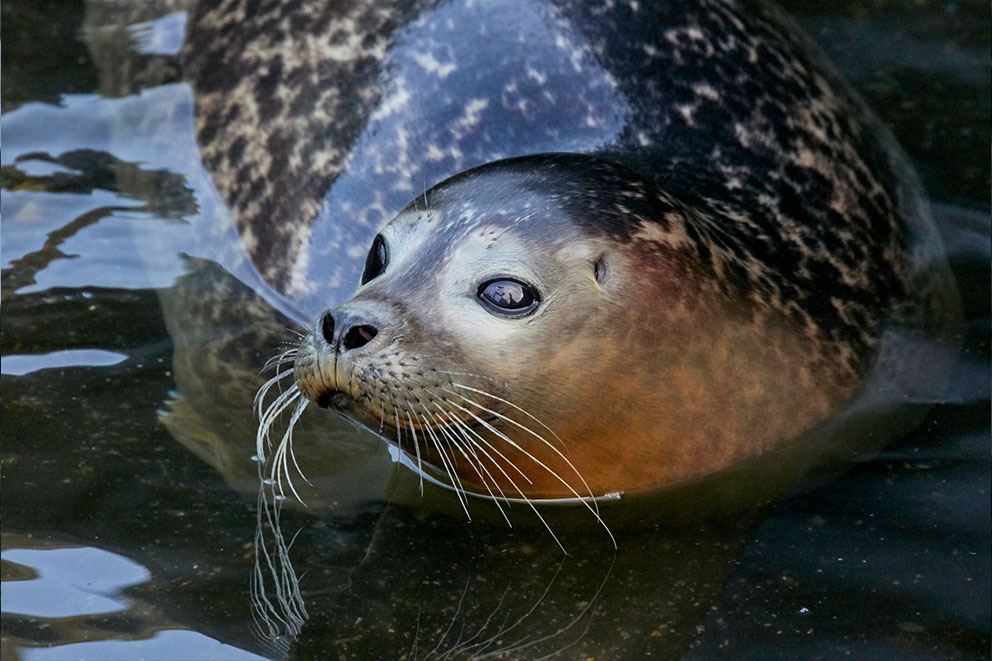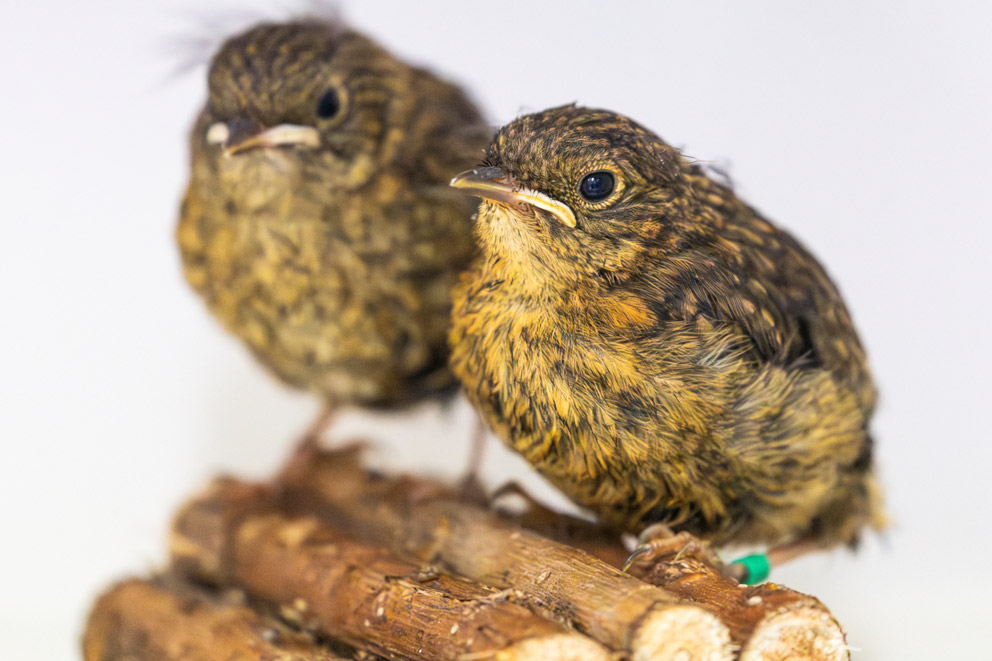- Find a Pet
- Advice and Welfare
- Ways to Give
- Get Involved
- What We Do
- Search
- My RSPCA
- Report a concern
- Gift in Wills
-
Colour modeVivid Calm
- Home
- Advice and welfare
- Wildlife
- Birds
- Baby birds
- Corvids
Found a baby corvid
Birds of the corvid family such as crows, magpies and jays - have an extended period of parental care that can last as long as six months.
Here's what to do if you find a baby corvid on its own.

Bird flu warning
Due to the Avian Influenza Prevention Zone (AIPZ) currently in place across the UK, some baby birds can't be handled. Please follow our bird flu and baby bird advice to check which species can be handled and what to do.
Why you might see a baby corvid on the ground
Baby corvids go through a 'branching' stage after leaving the nest, where they're fully feathered and can hop and run but can't fly properly. Instead, they climb and flutter around the branches of nearby trees.
Occasionally during this stage, they end up on the ground. This isn't usually an issue and the parents of most species will continue feeding them. Baby corvids may also attempt to climb back up the tree.
Who to contact for baby corvids
The best and quickest thing you can do to help an injured bird is to take it to a vet.
Our video has further advice on handling and transporting birds safely.
Please enter a valid video URL.
The URL can point to any Facebook, Twitch, Vimeo or Youtube video.
When to help a baby corvid
Monitor the baby corvid from a distance to see if it's fed. If after an hour you're concerned it's in danger and hasn't been fed then you can move it safely. Only do this if the bird is obviously healthy, bright and active. Place it high, as safely as possible in the tree closest to where its relatives are. Continue to monitor it from a distance, and remember:
- Before moving the baby bird, make sure the adults know it's there. You should hear the baby corvid and its parents calling to each other. If the adults don't notice the baby, you can carefully lift it up in the air to stimulate it to call to them.
- Sometimes babies will fall back out of trees, in which case as long as they appear healthy and uninjured, you can reattempt this a couple more times.
- If you successfully reunite the baby with its parents, check back again in 24 and 48 hours to make sure it's still with them.
Corvid fledglings
You can follow this same process to reunite healthy corvid fledglings that have been taken into human care if less than two hours have passed since they were taken.
Contact a vet if the baby is sick or injured.
Contact a wildlife rehabilitator for advice if the baby hasn't been attended to by parents for two hours, or you've confined them for more than two hours.
Corvid nestlings
Corvid nestlings will have few or no feathers. If you find one on the ground you'll need to call a professional, as it's not usually possible to renest them.



